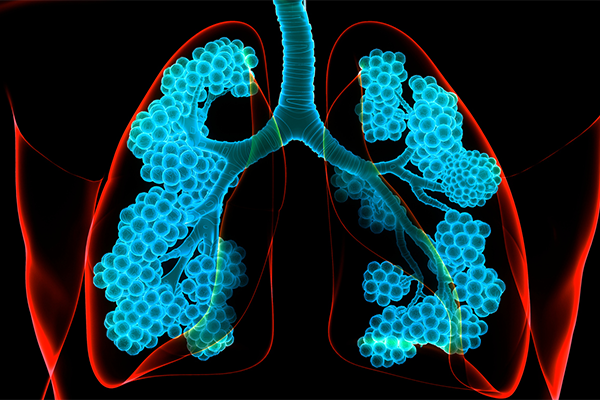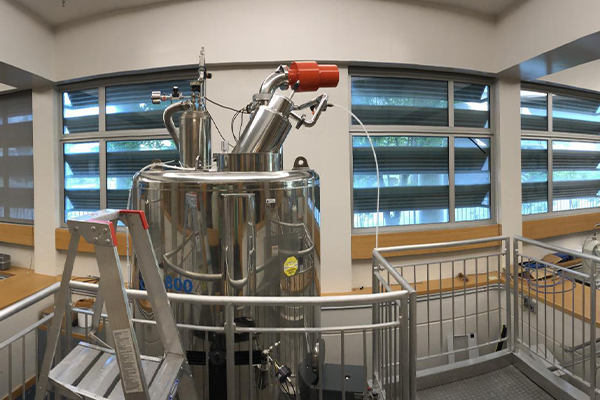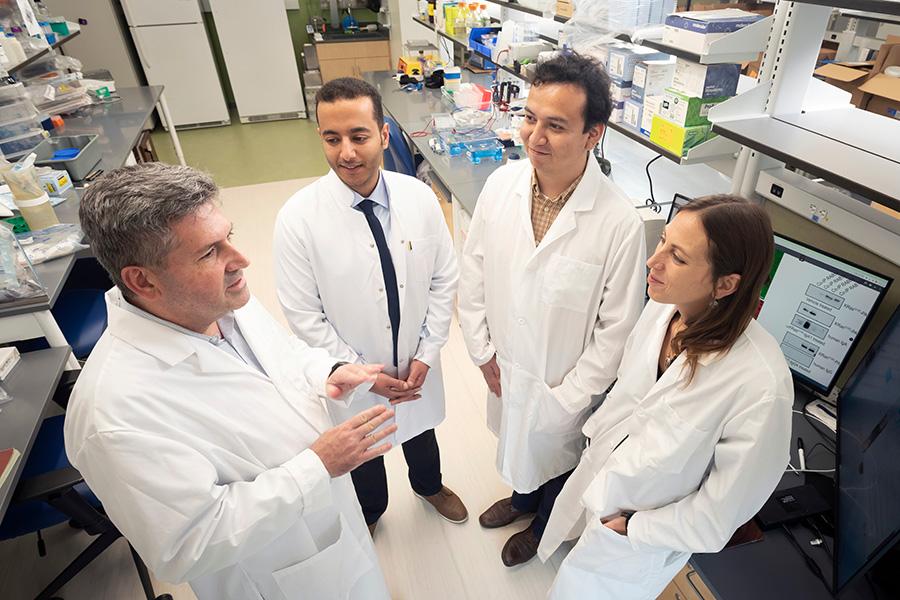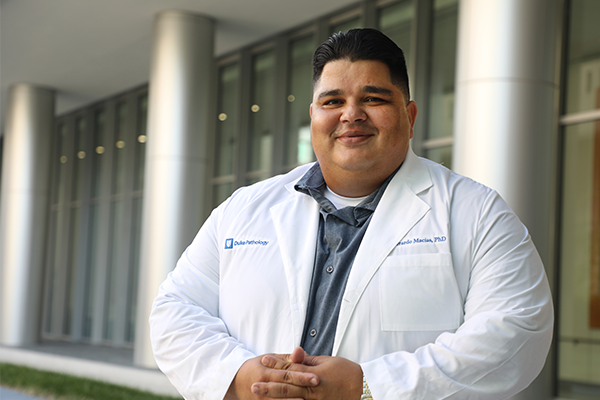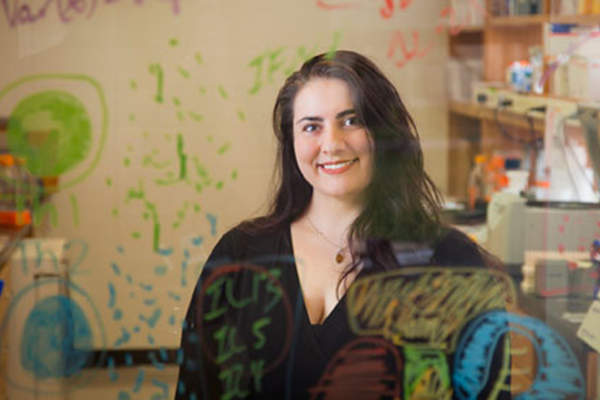Artificial Intelligence in Health Care: Promise and Pitfalls
Clinicians, researchers, and educators at Duke University School of Medicine and across Duke Health are using artificial intelligence (AI) to schedule surgeries more efficiently, give students immediate feedback on academic writing, and help speed up drug discovery.
Duke is at the leading edge of efforts to maximize the benefits of AI in health care while putting effective guardrails in place to minimize potential risks.
“We have a huge potential to reduce physician burden, increase health care efficiency, and improve the patient experience,” said Michael Pencina, PhD, director of Duke AI Health and chief data scientist for Duke Health. “But we need to be very intentional about what AI will be doing.”
Study Provides Clues to Developing Better Treatments for Lung Damage
Scientists and clinicians at the Duke University School of Medicine have discovered new details about how lung tissue heals after injury caused by toxins such as air pollution or cigarette smoke.
Record Attendance at North Carolina American Society for Microbiology Annual Meeting
The North Carolina American Society for Microbiology (NC-ASM) annual meeting, hosted by the Duke Microbiome Center, attracted more than 300 researchers from across the Southeast.
New Antibiotic Approach Proves Promising Against Lyme Bacterium
Using a technique that has shown promise in targeting cancer tumors, a Duke team has found a way to deploy a molecular warhead that can annihilate the bacterium that causes Lyme disease.
A Multi-Million “Treasure Hunter” Is Serving the Duke Research Enterprise
The Duke Nuclear Magnetic Resonance spectroscopy (NMR) Center provides seven "state-of-the-art, multi-million-dollar instruments where researchers can run their experiments for very affordable fees.
Antibody Targets Deep-Seated KRAS Cancer Mutations
Immunologist Jose R. Conejo-Garcia, MD, PhD, unveils an antibody that successfully targets once-untreatable KRAS cancer mutations.
Duke Researchers Probe the Magic of Psychedelics as Medicine
Duke scholars are studying how hallucinogenic drugs might become alternative treatments for medical-resistant conditions.
From Migrant Farm Worker to Duke Scientist, Everardo Macias Tackles Prostate Cancer
Everardo Macias's quest to find innovative treatments for prostate cancer mirrors his own incredible journey – from a migrant farm worker to a groundbreaking scientist.
Surprise Discovery Reveals Key Factor in Multiple Sclerosis
Immunologists identify a pivotal protein in the progression of MS. Could blocking it be the future of treatment?
Felicia Pagliuca Follows Her Fascination
When Felicia Pagliuca arrived at Duke as a first-year undergraduate student from Asheville, she was only 16, but she was already fascinated by biology and physics. She knew she wanted to do scientific research “someday.”

